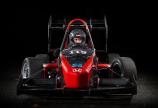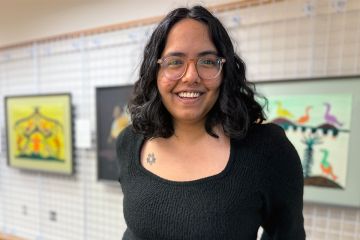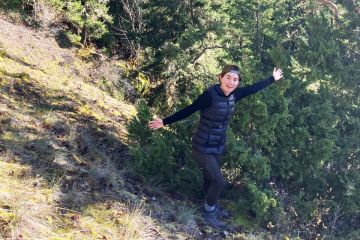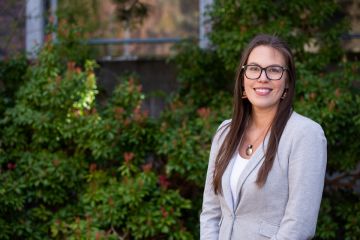On the fast track to the future
- Suzanne Ahearne
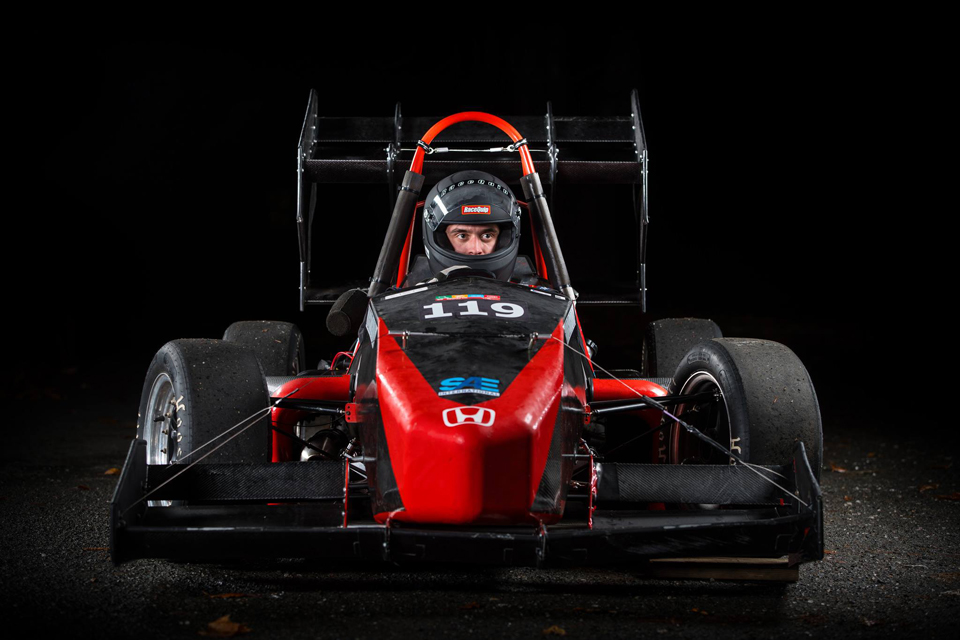
When Nick Schwaiger was 13, he got his first job at a houseboat company in Sicamous, BC where his dad was a mechanic. He started helping out servicing engines and power systems in the company’s fleet of 120 houseboats, plying the waters of nearby Shuswap and Mara Lakes. After a while, he was doing oil changes on engines, changing propellers and troubleshooting.
“It was a great way to start on the mechanical side of things,” says Schwaiger on the phone from France, where the German-born electrical engineering grad is currently testing autonomous vehicles at a track near Reims. “And the money at that young age wasn’t bad either,” he laughs.
Since Schwaiger finished course work in the summer, he’s been working as a vehicle engineer for Bosch at the Research and Technology Centre in Palo Alto, California on the team designing self-driving vehicle prototypes. “Ever since I worked at Tesla, for my third engineering co-op term, my interest was piqued in self-driving vehicles,” he says.
Student team builds formula racer
Schwaiger thinks back to one of the longest drives he’s ever done, when he was team lead for UVic’s Formula Motorsport team—a student-run club where they design, manufacture, assemble and compete with an open-wheel Formula-style race car in the world’s largest collegiate design competition in the world, Formula SAE. This May, Schwaiger drove for 38 hours towing their entry to the competition in Detroit. “Even switching off with a friend, it was exhausting,” he says. “It would have been nice for the truck and trailer to tow itself.”
Apart from the long drive to the international competition, where they finished 27th among 120 teams, Schwaiger says that being part of the Formula Motorsport team was “the best experience I had at UVic.” He joined the team in his first six months in the engineering program and spent more than four years on the team. Schwaiger worked on the vehicle’s brake system design team, then moved on to the electrical team, and eventually led the entire team. Being part of the team complemented his degree and gave him a more well-rounded experience, he says.
“It’s cool to see people from different backgrounds branching out of their comfort zones. We were all willing to pick up a book and learn something we didn’t know much about, and learn from each other,” Schwaiger says. The vehicle is entirely built by students, with faculty supervisors Dr. Nick Dechev and Dr. Stephanie Willerth.
Around the world in co-ops
The co-op program, Schwaiger adds, is central to getting into the industry you’re keen on and to gaining practical experience between semesters. Schwaiger’s first co-op, arranged through UVic’s Co-op and Career office, was close to home at VMAC in Nanaimo—designers and manufacturers of vehicle-mounted air compressors for use in remote areas. “It was probably the best co-op job I could have hoped for,” he says. He worked on mechanical, electrical and software design projects.
For his second co-op, his dad got him a job at TQ Systems in Germany, a manufacturer of components for electronics, medical devices and car media devices. He had a chance to stay with family friends and experience living in his first language again for a summer (his family had left when he was five) but he found the experience as an intern very different from his Canadian and US internships. “Students aren’t highly regarded there,” Schwaiger says. They don’t get paid much, the work hours are very rigid and he found the work wasn’t very challenging.
The move from Germany to Silicon Valley to work at Tesla for his third co-op—again arranged by UVic’s co-op program—was a big adjustment, and very different in terms of work hours, culture and environment. It took three interviews to nail the internship, the work was rigorous and 11-hour days were the norm. The main goal of his internship was to develop an automated testing system for the vehicles’ charging interface so firmware updates could be done over the air, similar to the way you can download a new update to your phone, Schwaiger explains.Canadian engineering students are highly regarded there, Schwaiger says, and Tesla has hired on at least three UVic grads after their internships.
He hasn’t been in the driver’s seat of a self-driving vehicle yet, but “even in the passenger seat,” he says, “it’s a bit eerie. It’s a lot different from cruise control.”
Right now, he says, Schwaiger wants to learn as much as he can to keep up with what he calls “an incredibly steep learning curve” at Bosch. “I’m still fresh out of school and the amount I’m learning from the people around me is amazing,” he says. “I want to help as much as I can to get this automated vehicle functioning and on the road.” Even if right now, the road is still the test track.
Photos
In this story
Keywords: convocation, student life, graduation, alumni, international, mechanical engineering, co-op

